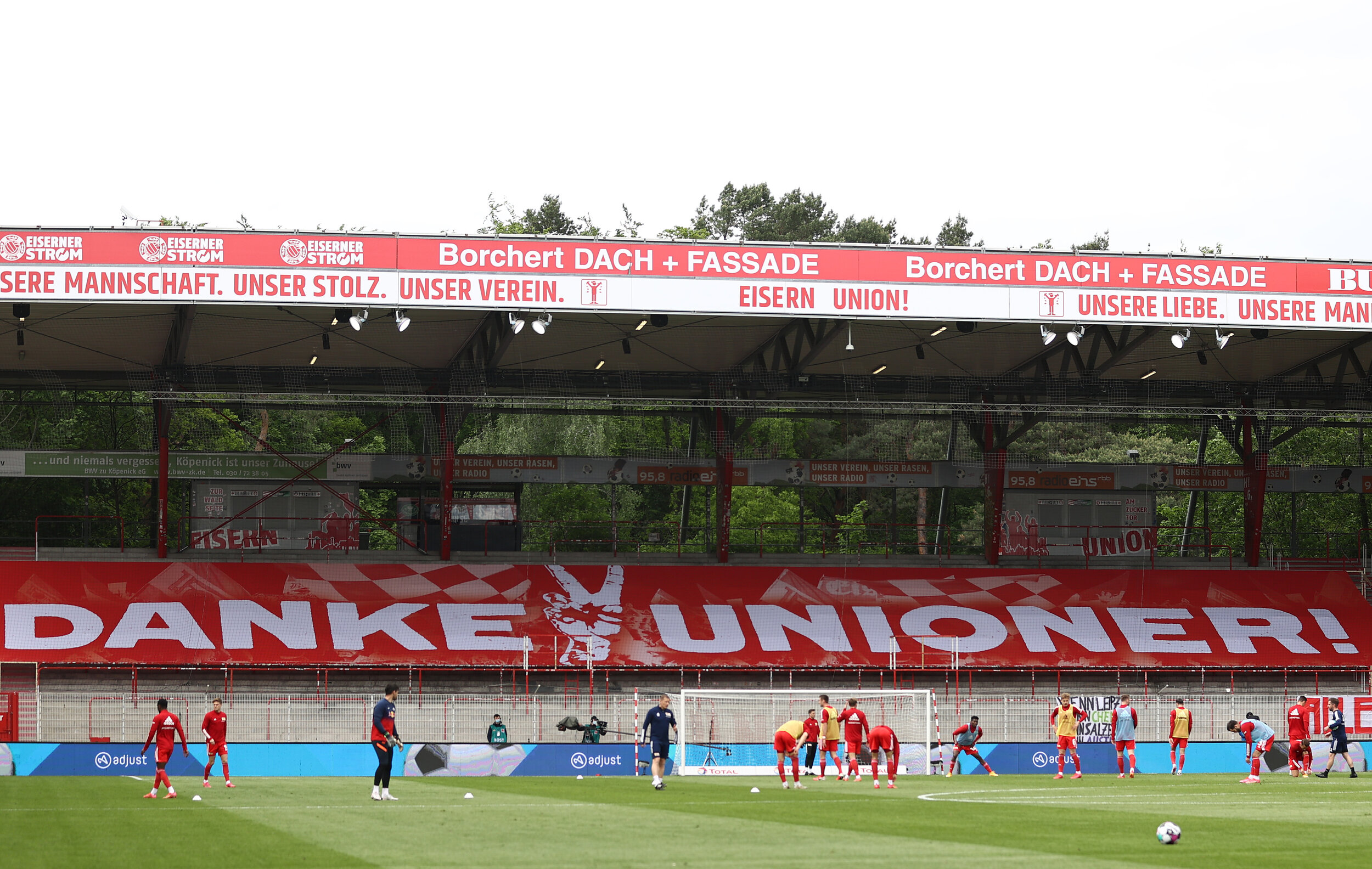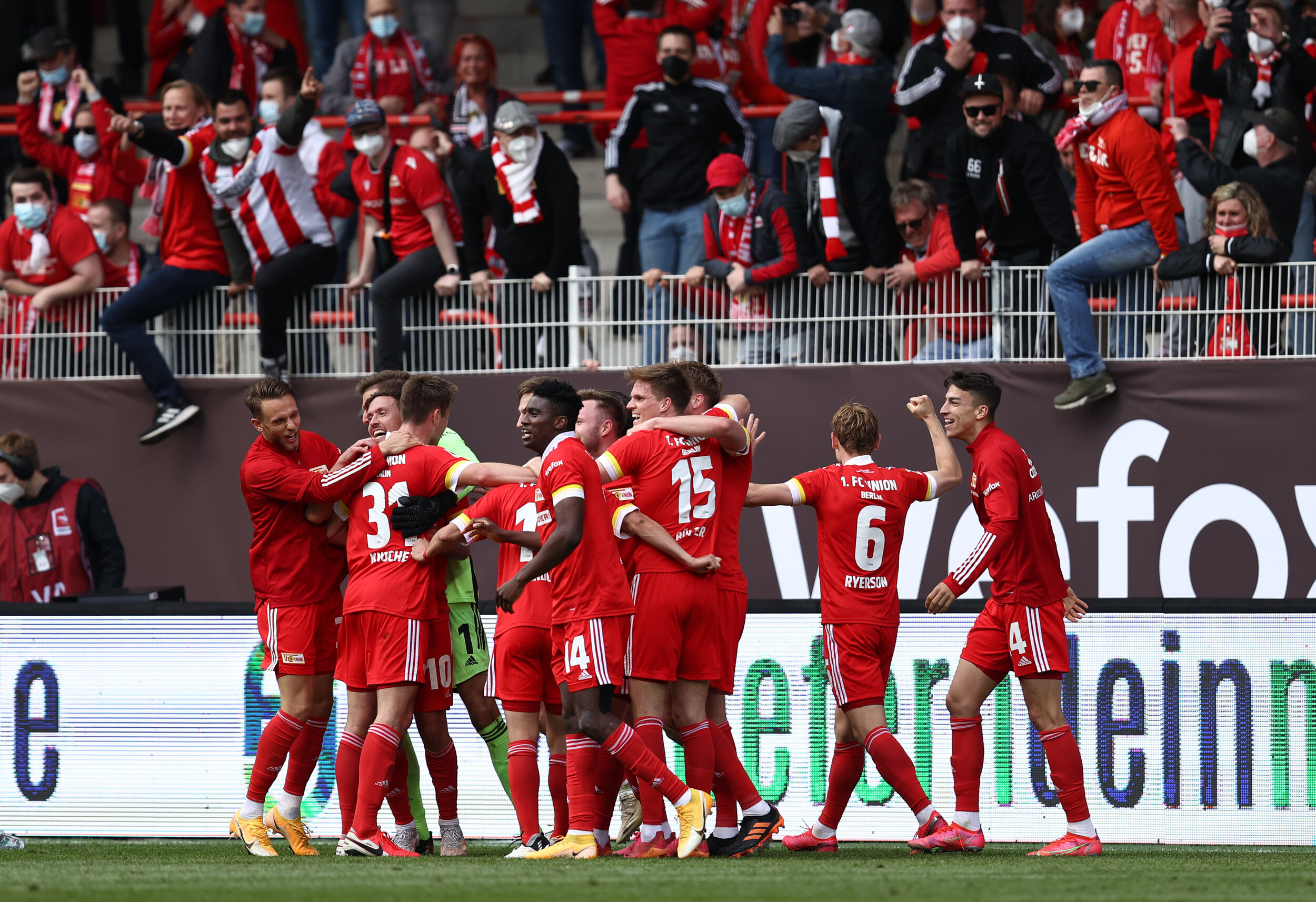
1. FC Union Berlin
Ambition and identity: an eternal dilemma
From their roots as a working-class club, 1. FC Union Berlin developed into a symbol of protest against the political structures in the former East Germany, establishing a strong bond with their supporters and not compromising their club identity because of commercial interests.
There is no sign of music, competitions, sponsor events or any other kind of entertainment during half-time breaks at Union’s home ground, the Stadion an der Alten Försterei. “It’s all about football and only football,” says Head of Communication Christian Arbeit.
Despite their financial limitations, Union finished seventh in the German top flight last season.
Stay true to the club’s values and resist the temptation of commercialisation – or adopt the mainstream business-driven structures of top-level football at the risk of sacrificing the club’s identity. That is ultimately the choice facing Bundesliga side 1. FC Union Berlin in the years to come as they find themselves caught in no man’s land between idealism and reality as a club which has consistently gone against the trends of modern football.
Before the 2020-2021 season kicked off, Head of Communication Christian Arbeit admitted that Union Berlin would be fighting just to stay in the top flight, given their financial limitations compared to the rest of their fellow Bundesliga clubs. Union bring in about a third of Bayern Munich’s TV revenue (EUR 29 million), while their kit sponsor hands over EUR 2.5 million, small change in comparison to the EUR 70 million that VfL Wolfsburg receive. The unsung Berlin club’s record transfer fee is also just EUR 6.5 million (from the sale of Sebastian Andersson to 1. FC Köln last season)
However, despite their financial disadvantages, Union managed to finish the season in seventh place, and astonishingly “Die Eisernen” were even in contention for a UEFA Champions League spot for much of the season. All over the world, supporters would normally be thrilled to see their team succeed on so many levels, but Union’s fans are not only embracing their club’s current success but are also focused on resisting the mechanisms of the modern game.
The origins of those sentiments can be traced back to the time after World War II when, as a working-class club, Union Berlin developed into a protest against the political regime of the time and became a refuge for people who felt they like they did not belong with the rest of society. The notion of “us against them” became a common theme, and the club have done their utmost to give their fans a voice and respect their wishes, forging a special bond between the club and fans.
Consequently, half-time breaks at Union Berlin are a world away from the spectacles on show at most other stadiums around the world. You will not find any fan-cams, entertainment, loud music blasting through speakers, marketing campaigns, sponsor competitions or cheerleaders at the Alte Försterei.
“During matchdays, we don’t hit our fans with trailers, advertisements, cheerleaders or fun events on the pitch at half-time. The fans don’t come to see a band or a quiz or a presenter going nuts with a microphone. We don’t make them feel as if they are just there to support a money-making machine. We do it out of respect for the match and the fans who should be allowed to celebrate however they want to,” Arbeit explains.
“Scheisse, wir steigen auf!” (“Damn, we’re getting promoted!”) read one banner at the Alte Försterei two seasons ago when fans were cautious about life in the top flight. Where else in Europe would you find fans who do not want promotion? But the banner offered a glimpse into the mindset of a club that has consistently gone against the grain of modern football.
“We give the fans space to come up with ideas and then turn those ideas into reality. That was the case when we arranged the stadium living room for the summer of 2014 [when fans could bring their sofas to the stadium to watch the World Cup] and that was also the case with the Christmas carols when we started them 15 years ago. The fans have to feel welcome to put forward ideas about what needs to be done at the club. In that way, they feel like they are part of the club. They are not outsiders who buy tickets. They are part of the place itself,” says Arbeit.
Union are currently flying high. Last season’s predictions about them having a real battle on their hands to avoid relegation vanished into thin air as they made a mockery of their underdog status. Given the dramatic financial boost from TV funds on the back of their lofty finishing position in the Bundesliga, most experts would expect them to splash out to help them write another chapter in their unexpected success story.
But this is a club unlike any other and their managers are keeping their feet solidly on the ground despite the club’s bright future. Indeed, fans can rest assured that the club will not compromise their identity for a sudden urge to go along with more established and modern business methods in the quest for success.
“What is special about our club is that the people who are running it – like the president or the executive board – have been Union Berlin fans themselves since childhood. We don’t need a marketing agency to develop a concept for how we should present ourselves. The club is run by its own fans. There is a very clear idea of who we are and what we don’t want to become. And that won’t change,” says Arbeit.










